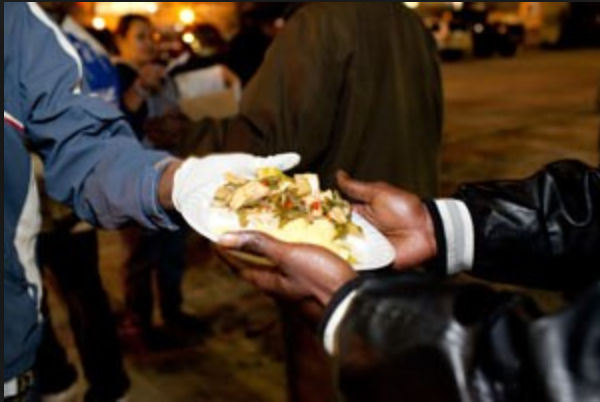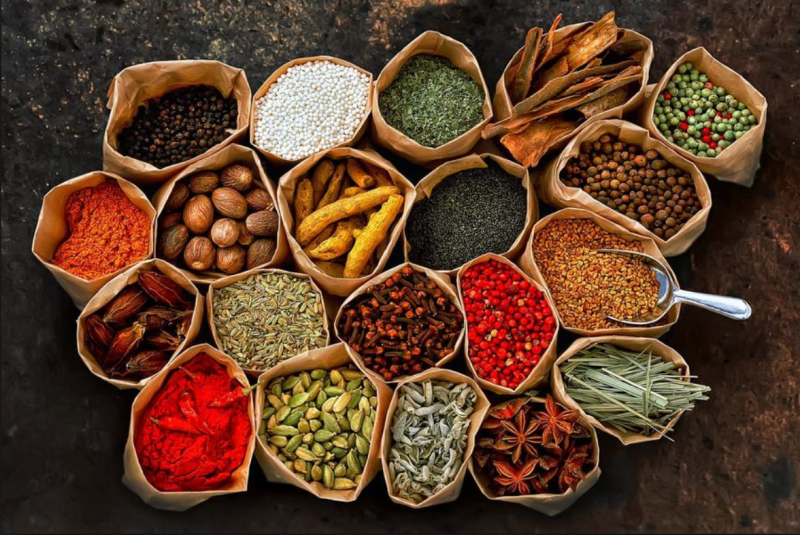Spices: A Symbol of my Privilege
 As part of my service as an AmeriCorps National Health Corps-FL member, I have been given the opportunity to facilitate health education classes with the residents of the Sulzbacher Center, a homeless shelter located in downtown Jacksonville. Recently, I had a profound realization of my privilege in society during one of the lessons I was giving on nutrition and diabetes management. I was speaking to the class about the importance of monitoring their sodium intake, and advising them not to add additional salt to food in order to prevent themselves from developing chronic disease.
As part of my service as an AmeriCorps National Health Corps-FL member, I have been given the opportunity to facilitate health education classes with the residents of the Sulzbacher Center, a homeless shelter located in downtown Jacksonville. Recently, I had a profound realization of my privilege in society during one of the lessons I was giving on nutrition and diabetes management. I was speaking to the class about the importance of monitoring their sodium intake, and advising them not to add additional salt to food in order to prevent themselves from developing chronic disease.
“Even though it may be tempting, try not to reach for the salt shaker during your meals,” I said.
“Ok, so what you’re saying is that we’re only allowed to eat bland food, right?” said one of the students with a tone of sarcasm and annoyance in his voice.
Without thinking, I responded with what I thought was a reasonable solution saying, “Well you can always go to the store and get spices to add to your food. You can add flavor that way, without adding extra salt and calories.”
“Honey, you have to understand who you’re talking to. We get what they give us. We don’t get a choice,” he responded, exposing my blatant ignorance to the rest of the class.
In that moment, I felt extremely embarrassed and humbled. It hadn’t even occurred to me just how difficult it would be for this man to do what I was asking of him. As a privileged individual, finding healthy, flavorful food is a simple task. I am able to drive to the grocery store whenever I want, pick out whatever food and spices I am craving, and then prepare that food in the comfort of my own kitchen.
 However, for many of the residents of the Sulzbacher, there are several barriers that make this extremely difficult. First, like my student pointed out, many of them receive their meals at the shelter, meaning they do not have a choice in what they are eating. They must eat whatever they are served, regardless of whether they like the taste. Otherwise, they might not eat at all. In addition, many do not have the money or transportation to go to the store and buy spices. Even if they were able to obtain the spices, they do not have a kitchen cabinet to store them in.
However, for many of the residents of the Sulzbacher, there are several barriers that make this extremely difficult. First, like my student pointed out, many of them receive their meals at the shelter, meaning they do not have a choice in what they are eating. They must eat whatever they are served, regardless of whether they like the taste. Otherwise, they might not eat at all. In addition, many do not have the money or transportation to go to the store and buy spices. Even if they were able to obtain the spices, they do not have a kitchen cabinet to store them in.
Finally, for many, finding spices for their food is frankly the least of their concerns. They are probably not going to put energy into trying to find a bottle of oregano when they are worrying about more pressing issues like where they will sleep, or how they are going to afford their medications.
My encounter with this student is a prime example of the fact that a person’s health is not solely determined by their personal decisions. For instance, eating a nutritious diet is not as simple as just choosing not to use the saltshaker during your next meal. Your socioeconomic status directly impacts how many barriers you will encounter in your quest to live a healthy lifestyle.
Although I had learned a lot about these social determinants of health in school, being in AmeriCorps has put me in a position where I am able to see how these factors directly impact people’s lives. Being a witness to this social injustice has reaffirmed my desire to pursue a career in the public health field. I am determined now more than ever to learn more about the health disparities that exist in this country and to play a role in eliminating them so that everyone can live a healthy life, regardless of their status in society.
This blog post was written by NHC FL AmeriCorps member, McKenzie Roondey.
McKenzie serves at the I.M. Sulzbacher Center as a Patient Navigator.
